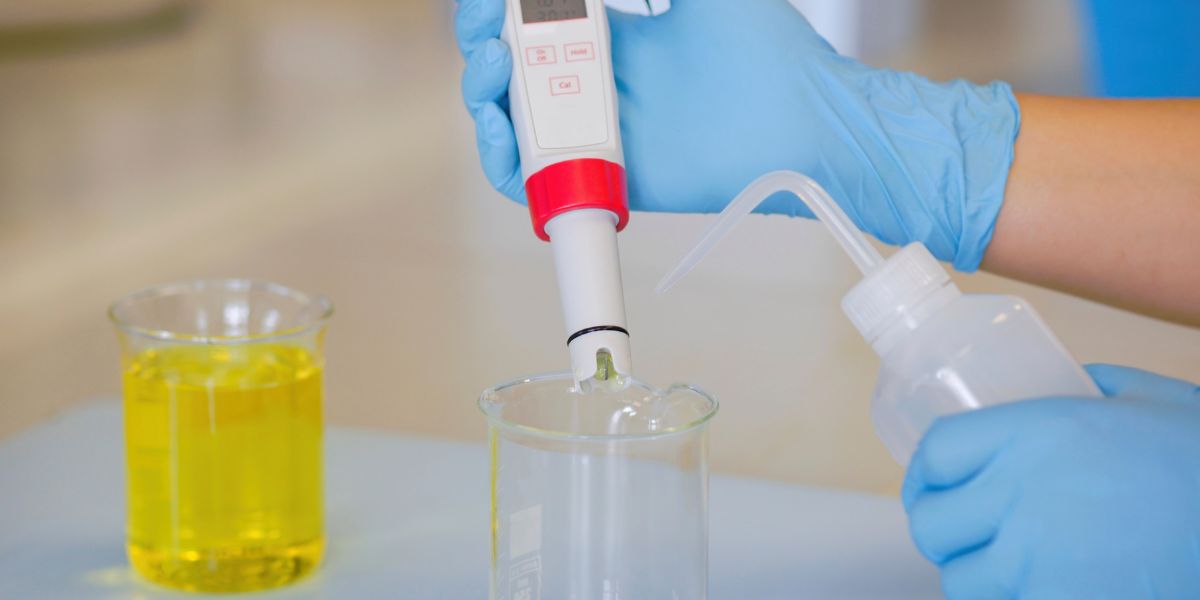
Incorporating pH meters into your scientific projects can elevate the precision and reliability of your findings significantly. Have you ever considered how these simple yet powerful tools can unlock a world of insights across various scientific disciplines? From unraveling the mysteries of biological processes to fine-tuning chemical reactions and safeguarding environmental health, the potential applications of pH meters are vast and diverse. Let's explore the depths of their impact and the innovative ways they can revolutionize your scientific endeavors.
Importance of Ph Measurement
Understanding the significance of pH measurement is crucial for accurate scientific analysis and experimentation. pH, a measure of the acidity or alkalinity of a solution, plays a fundamental role in various scientific fields.
By measuring pH, you can determine the concentration of hydrogen ions in a solution, which is vital for understanding chemical reactions, enzyme activity, and overall system balance. In chemistry, pH measurement is essential for identifying the optimal conditions for reactions to occur and for maintaining the stability of solutions.
Moreover, in environmental science, pH levels are critical indicators of water quality, affecting aquatic life and ecosystem health. By monitoring pH levels, you can assess the impact of pollution and make informed decisions to protect the environment.
In agriculture, pH measurement is crucial for determining soil quality and nutrient availability, influencing crop growth and productivity. Overall, a thorough understanding of pH measurement is indispensable for conducting precise scientific research and drawing accurate conclusions.
Ph Meter Applications in Biology
When using pH meters in biology, precise measurements are crucial for accurate analysis and experimentation. In the field of biology, pH meters have various applications that aid in understanding biological systems. One common application is in studying enzyme activity, as enzymes often function within specific pH ranges. By measuring and adjusting the pH levels in enzyme reactions, researchers can optimize conditions for enzyme activity.
pH meters are also utilized in cell culture maintenance, where maintaining the pH of the growth medium is essential for cell viability and growth. Additionally, in soil biology, pH meters help assess soil acidity or alkalinity, which directly impacts plant growth and microbial activity. Monitoring pH levels in aquatic environments is another vital use in biology, as it affects the health of aquatic organisms.
Ph Meter Uses in Chemistry Experiments
Ph meters are essential tools in conducting precise and controlled chemistry experiments. In chemistry, these devices are commonly used to measure the acidity or alkalinity of solutions. By accurately determining the pH level of a substance, chemists can understand its chemical properties, reactions, and behavior in various conditions.
For example, when conducting titrations, pH meters help chemists identify the endpoint of a reaction by pinpointing the exact pH where the solution is neutralized. This ensures the experiment is carried out with accuracy and reproducibility.
Additionally, pH meters are crucial in monitoring the progress of chemical reactions that are pH-dependent, providing real-time data to researchers for analysis and adjustment. Whether testing the pH of a new compound, monitoring the acidity of a reaction mixture, or studying the effects of pH on chemical processes, pH meters play a vital role in advancing scientific knowledge in the field of chemistry.
Ph Monitoring in Environmental Studies
In environmental studies, monitoring pH levels is crucial for assessing the health of ecosystems and water bodies. By measuring pH, you can determine the acidity or alkalinity of the environment, which has a direct impact on the organisms living there.
In freshwater ecosystems, such as lakes and rivers, pH levels affect the survival of aquatic plants and animals. For example, many fish species can only thrive within specific pH ranges, so monitoring pH is essential for their conservation.
In soil studies, pH monitoring is vital for determining the soil's fertility and its ability to support plant growth. Additionally, in marine environments, pH levels can indicate the presence of ocean acidification, which can harm coral reefs and shellfish populations.




